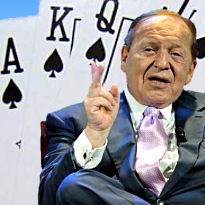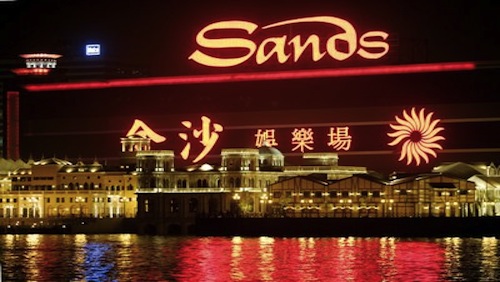 Las Vegas Sands Corp. is facing a new lawsuit, or in this case, a new old lawsuit from one Richard Suen. The Hong Kong businessman is taking the casino operator to court – again – over claims that the LVS hasn’t paid him his share for assisting it in obtaining a Macau gaming license.
Las Vegas Sands Corp. is facing a new lawsuit, or in this case, a new old lawsuit from one Richard Suen. The Hong Kong businessman is taking the casino operator to court – again – over claims that the LVS hasn’t paid him his share for assisting it in obtaining a Macau gaming license.
Tim O’Reilly of the Las Vegas Review Journal wrote that LVS chairman and CEO Sheldon Adelson will once gain be the lead witness in the case filed by the one-time consultant. Suen alleges that his fee of $5 million plus 2 percent of the casino revenue for helping Sands enter Macau has yet to be given to him despite his assertions that the deal was made way back in 2001 with former Sands president Bill Weidner.
Clark County District Judge Rob Bare made the ruling last week, serving Adelson with a summon to appear at the trial that has been scheduled to begin on April 3.
Suen’s beef against Adelson and Las Vegas Sands isn’t exactly new. Back in a 2008 trial, Suen was awarded $43.8 million by a jury despite LVS’ arguments that he didn’t deserve all those zero’s in his check. But two years later, the Nevada Supreme Court reversed the 2008 jury’s decision, keeping the money in LVS’ pockets on grounds that the district court judge admitting to making errors during the trial.
But this dude Suen appears to be undaunted despite hints of a settlement having been reached. He wants another shot at Las Vegas Sands and apparently he has it.
Adelson isn’t scheduled to take the stand until April 4, a decision meted down by Judge Bare to allow the Sands chairman and CEO to travel to Israel and spend Passover , which runs from March 26 until April 2, with his family. But once Passover ends, round 2 of Las Vegas Sands versus Richard Suen is set to begin.
This new lawsuit by Huen is the latest in a string of cases that LVS has had to deal with in recent months. A few weeks ago, the operator informed the US Securities and Exchange Commission (SEC) that it probably violated the Foreign Corrupt Practices Act (FCPA) via its past dealings with Chinese officials citing an internal audit committee tasked by the LVS board with investigating allegations of impropriety. The audit had determined that there were “likely violations of the books and records and internal controls provisions” of the FCPA, which prohibits bribery of foreign officials by US companies.






